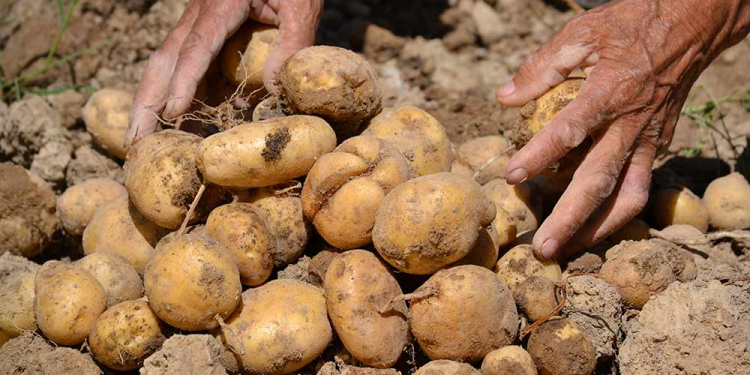A study determined that the types of Creole potato CCC059, CC103, CCC116, CCC140 and CCC14, have high resistance to water stress in dry seasons. The finding could contribute to the improvement of other varieties, to strengthen the productivity of crops and their resistance to climate change.

The Solanum tuberosum, better known as Creole potato, is a tuber that belongs to the Solanaceae family, this species is cultivated on 8,787 hectares of the national territory, mainly in the departments of Antioquia, Boyacá, Cundinamarca and Nariño. And it is a characteristic food of Colombian gastronomy that adds flavor and texture to typical dishes such as ajiaco.
The cultivation of Creole potatoes develops effectively in areas with high humidity and cold climates, however, with the effects of climate change, this food tends to be highly susceptible to dry seasons. One of the difficulties faced by paper farmers, for example those who do not have irrigation systems.
The potato is a tuber that is part of the basic family basket of Colombians and is grown mainly in the Andean Region. According to the Ministry of Agriculture and Rural Development, the departments of Cundinamarca, Boyacá, Nariño and Antioquia, concentrate 90% of the planted area and production with about 2,782,676 million tons per year. According to the Colombian Agricultural Research Corporation – AGROSAVIA, in Colombia there are more than 300 varieties of native potatoes. But despite the extensive catalog, the Colombian Federation of Potato Producers – Fedepapa, assures that only 12 varieties are consumed, among which are: the Creole potato, the pastusa, the tuquerreña and the diacol capiro.

Since 2020 the National University – UNAL, has led various projects around the improvement of seeds with the purpose of generating positive impacts on the production and quality of agricultural products. Teresa Mosquera Vásquez, magister in Phenotypic Evaluation of the educational institution, carried out an investigation to identify varieties of Creole potato resistant to water stress.
In the study, 109 types of this tuber were analyzed, among them the Colombian Creole, Guaneña Creole, Latin Creole, Paisa Creole and Galera Creole; species that have been improved and are typical of the UNAL Plant Breeding Program. According to Vásquez’s explanation, they were planted under normal conditions and irrigation was suspended for 15 days to determine their resistance.
As a result, it was identified that the varieties CCC059, CC103, CCC116, CCC140 and CCC14 were the least dehydrated, because they contain special characteristics in their DNA that make them more tolerant to lack of water. Given this positive finding, Lina María López Contreras, Master in Agricultural Sciences of Genetics and Plant Breeding UNAL, assured that “the research lays important foundations for future breeding programs that allow the development of potato varieties adaptable to drought conditions and that can be used by farmers. producers ”.
It should be noted that, although genetic studies of Creole potatoes have already been carried out, UNAL emphasizes that this is the first to be carried out for tolerance to water stress. Therefore, this project is positioned as an important advance, which could improve the productivity of Creole potato crops and represents an opportunity to face the consequences of global warming.
As a result, in the municipalities of Ventaquemada and Chiscas, 17 varieties of ancestral potatoes flourished, which were on the verge of disappearing and being lost in oblivion. With these strains, it was possible to consolidate a nutritional table that strengthens the work of Native Treasures, and more than 10 families whose main socioeconomic activity is potato cultivation in the region benefited. It should be noted that, according to the Ministry of Agriculture and Rural Development, this undertaking is credited with the rescue of 40 groups of tubers, thus becoming a leading example of cultural conservation.
Por: Ivania Alejandra Aroca Gaona. Periodista.
Editor: Karina Porras Niño. Periodista – Editora.








